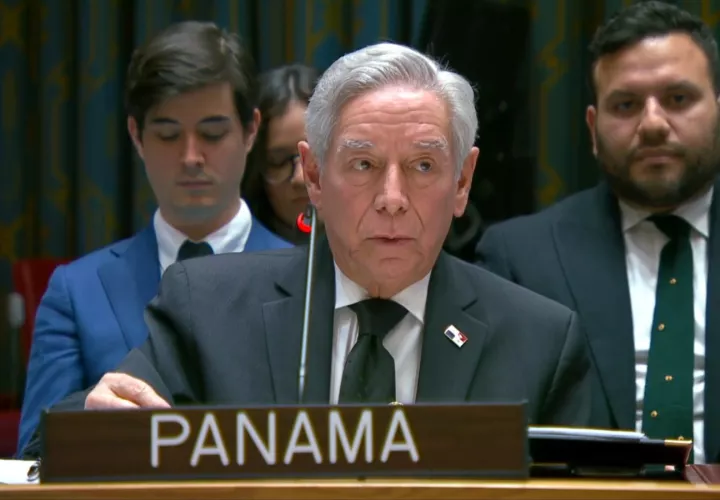WHAT THE PAPERS SAY: Crazy to arm Syrian rebels

Crispin Black in The Week, May 28
IT LOOKS as though President Assad and his forces are on a bloody roll, if not yet actually winning the Syrian civil war.

With the assistance of Iranian-backed Hezbollah fighters from Lebanon, they have regained a number of important towns in the south close to the Lebanese border and are squeezing the rebels throughout the country.
Because the situation on the ground is changing, wiser heads in the West are coming to the conclusion that Assad might be the least worse option and that arms shipments to the rebels will do little more than prolong the agony.
But no – David Cameron and William Hague are clinging to the lightweight analysis so characteristic of both men and have insisted that their hare-brained plan to ship weapons to the rebels and throw fuel on the sectarian fire goes ahead. At a foreign ministers' meeting in Brussels over the Bank holiday, the UK – and France – refused to vote for an extension of the EU embargo despite bitter opposition.
Austria, the Czech Republic, Finland, the Netherlands and Sweden – indeed the vast majority of EU countries (25 out of 27) – were desperate to keep the embargo in place because they believe that any arms shipments, even if intended for what the British foreign office calls 'moderates', will inevitably fall into the hands of Islamists.
The UK's policy is doubly wrong-headed. Even if the rebels were winning it would be crazy to send arms to Syria.
One of the difficulties with the Syrian rebellion is that the most successful fighters in it so far have tended to be Islamist extremists – in particular a suicide-bombing, prisoner-massacring al-Qaeda franchise called Jabhat al-Nusra, the so-called Front for the Defence of the People of Greater Syria.
If Assad were eventually to be overthrown, it is these men who would be calling the shots. They loathe anyone who does not follow their extreme form of Sunni Islam – let alone the Alawites, Druze and Christians who make up a quarter of Syria's population. We got a glimpse of their world view in Woolwich last week. Massacres no doubt would follow in short order.
The threat of extremist Sunni Islam has not been lost on the leader of the Lebanese Shia Hezbollah movement, Hassan Nasrallah. He has given his backing to President Assad, warning in a televised speech that if Sunni Islamists took over in Syria they would pose a threat to the entire Lebanese population – Shia and Sunni Muslims, as well as Christians.
He described them as 'Takfiris' – Muslims who accuse other Muslims of apostasy – for which the penalty is death. It was a clear warning not just to the minorities in the Levant but to all Muslims in the area of what Sunni fanatics bring with them. No one would be safe.
There may be a silver lining in all this for that other most interested party, the Israelis. Their geographical location and mind-set are, of course, different from that of the British political elite. The idea of a 'war of choice' as practised by British leaders over the last decade must seem to the Israeli cabinet and the Israeli Defence Force's planners an unimaginable luxury – for them every conflict is existential.
But I wonder if they wouldn't prefer their current enemies on the northern border – the Syrian Army and Hezbollah – to what might come after the establishment of a jihadist state in Damascus.
The Syrian army is currently proving effective in killing its own people but it has never prevailed against the Israelis. In 1973, during the Yom Kippur War, a few exhausted and shell-shocked IDF tank crews, some the children of Holocaust survivors, held off a massive Syrian armoured attack on the Golan Heights for nearly three days – just long enough for Israeli reserves to be fed into the battle. The Battle of the Valley of Tears (6-9 October 1973) is one of military history's great epics.
Hezbollah has a better record – even winning the grudging respect of the IDF during the 2006 Lebanon War. But both are probably more manageable than any alternative.
Given the balance of forces currently arrayed in Syria and strong continued backing from the Russians – who confirmed this morning that that they will go ahead with a delivery to Assad of S-300 anti-aircraft systems in an effort to deter "hotheads" from joining the conflict – the quickest road-map to some kind of ceasefire on the ground looks like involving Assad.
That's probably the best and quickest way to stop the killing – 97,000 casualties so far – an appalling aggregation of human suffering, a by-product of which has been some shocking television pictures beamed into our sitting-rooms. The casualties have not been confined to the rebel side alone, however. Neither have the atrocities.
If Cameron and Hague feel “something must be done”, then instead of insisting on arms shipments it would be more sensible if they stopped calling for Assad's head and joined Russia and China in seeking to influence his regime.
But most sensible of all would be to stay out of it. There is certainly no support at home for the UK getting more involved in Syria's tragedy. The fact that it has a Mediterranean shore (like Ibiza, come to think of it) – as government spokesmen keep reminding us – doesn't change the fact that it's more than 2,000 miles away, none of our business and in any case we can't afford it





